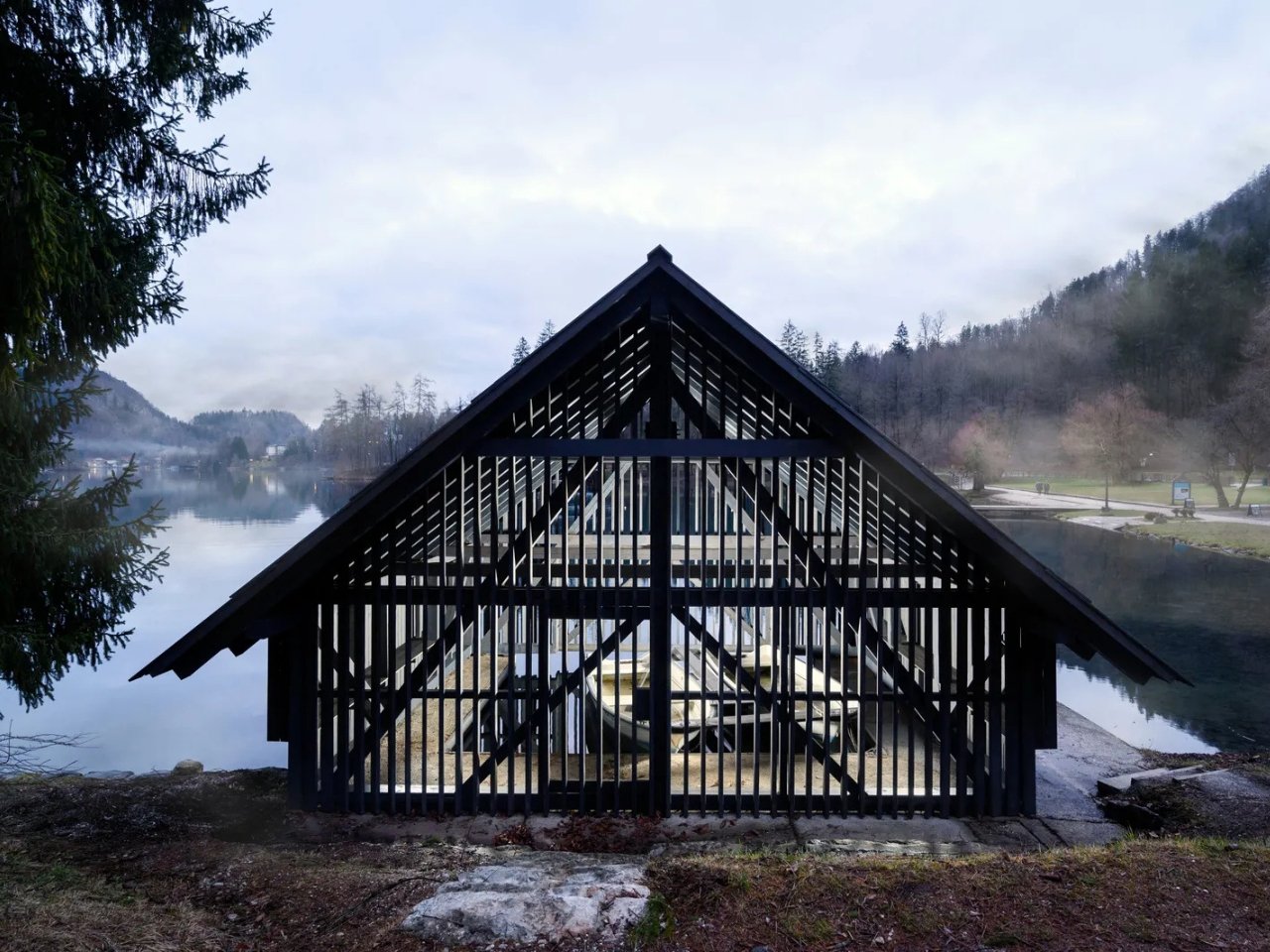Nestled along the western edge of Slovenia’s iconic Lake Bled, the Boathouse Zuka stands as a remarkable example of sustainable architecture that honors tradition while embracing innovation. This modest 25.5-square-meter structure, renovated by Ljubljana-based OFIS Architects, demonstrates how thoughtful design can transform a simple building into both a functional research facility and an educational landmark.
The project began with a unique challenge: how to preserve the heritage of a traditional alpine boathouse while adapting it for modern scientific use. Rather than demolishing the existing structure, OFIS Architects chose a painstaking restoration approach that would become the project’s defining characteristic. The architects initiated a careful dismantling process, logging every piece and subjecting the wood to repair and protection using traditional pine resin.
Designers: OFIS Architects (photos by Miran Kambic)
What makes this renovation truly special is how the architects reimagined the building’s facade. The wooden planks were rotated and offset at varying angles, generating a rhythm of slats that offers transparency, shadow play, and filtered views from within and without. This innovative approach creates a dynamic interplay of light and shadow throughout the day, transforming the humble boathouse into a beacon that glows softly when illuminated from within at dusk.
The building now serves as headquarters for the Slovenian Environment Agency’s research operations on Lake Bled. Scientists can set out from here to monitor Lake Bled’s water quality, making the structure both functionally important and symbolically significant as a guardian of the lake’s ecological health. Perhaps the most innovative feature is the experimental rooftop filtration garden that crowns the traditional pitched roof. This system of wooden trays demonstrates how architecture can actively contribute to environmental protection. Lake water is pumped through this substrate, creating a living laboratory that visitors can observe and learn from.
Inside, the architects made thoughtful material choices that enhance both comfort and coherence. Cold cement tiles were replaced with natural wooden flooring, improving internal comfort for researchers and maintaining the structure’s coherence with its timber envelope. These changes ensure the building feels warm and welcoming while maintaining its connection to traditional alpine architecture. The project represents more than just a successful renovation; it offers a model for sustainable design in an era of climate change. The project offers a model for low-impact, high-value architecture: one that preserves memory, extends the life of existing structures, and adds new layers of meaning through ecology and public engagement.
As tourism and climate pressures continue to impact Lake Bled, the Boathouse Zuka suggests that meaningful architecture doesn’t require elaborate forms but rather regenerative gestures that restore, teach, and protect. Through its thoughtful blend of tradition and innovation, this small structure proves that even the most modest buildings can make significant contributions to both cultural heritage and environmental stewardship.
The post Traditional boathouse in Lake Bled transformed as research HQ first appeared on Yanko Design.

